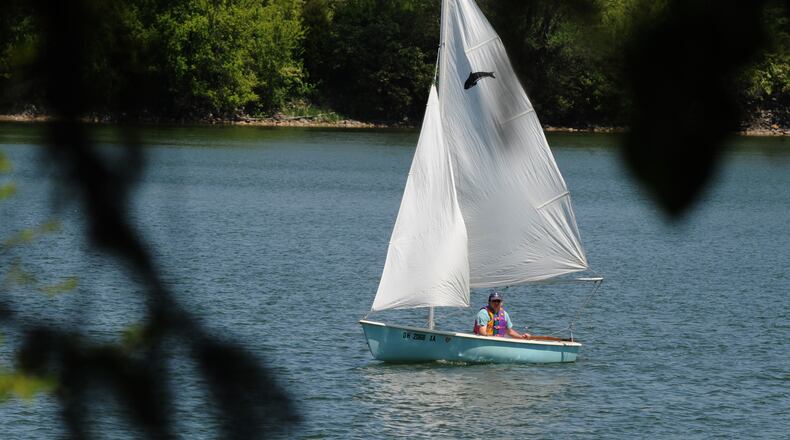According to Dayton Fire Department Captain Brad French, department boats were recently deployed for rescue purposes three times in a 24-hour period. Two of the most common reasons for rescue deployment include boating-related injuries and individuals who have fallen into a body of water, French said.
While the risk of an accident may increase during the summer, there are plenty of steps local residents can take to make sure their power boating trips go off without a hitch.
“There is no better experience to be in touch with nature,” said Ken Alvey, former director of the Boating Association of Ohio. “It’s a great family activity. You should have a ... fantastic summer spending it on the water.”
Float plans, sobriety and safety tools
Relaying a float plan for the trip to a trustworthy third party who will be staying behind is important, said Alvey, who is also former president of the Lake Erie Marine Trades Association. A float plan describes the logistics of the trip, including details such as timelines and potential destinations.
“Let people know where you’re launching, and when you expect to be at your takeout point, so people can reach for you and check on you to make sure you’ve arrived safely,” Alvey said.
During any trip, the operator of the boat carries a lot of responsibility. A press release from the Ohio Department of Natural Resources said there were at least 15 boating-related fatalities In Ohio last year.
Alvey said remaining sober, hydrated, and focused while navigating the boat is crucial.
“There’s a certain element of the hot sun and the temperature (that) does cause some diminished capabilities,” Alvey said. “But when you add alcohol to that factor, the captain of the boat shouldn’t operate if he’s been drinking alcoholic beverages.”
Heasley of ODNR said boaters should monitor weather conditions and keep all necessary safety equipment on board — fire extinguishers, visual distress signals, life jackets, anchors, and flares.
Taking a boating education class can also improve the experience for everyone involved, Heasley added.
Paddlers preparing too
In addition to motorized boating, canoeing and kayaking are great ways to enjoy Dayton’s rivers. However, paddling in a river environment can prove challenging for less experienced individuals, said Brent Anslinger, the outdoor recreation program manager for Five Rivers MetroParks.
“If you’re in a river environment, you should have some prior experience on flat water before you move to a moving water scenario,” Anslinger said. “You should understand how the river moves, how to look for hazards, and be prepared to handle those kinds of situations.”
Derrick Keating, an outdoor recreation coordinator for Five Rivers MetroParks advised paddlers to prepare — always wear a life jacket, dress for the temperature and wear close-toed shoes for the uncertain terrain of river bottoms. Paddlers should avoid going out alone and be mindful of fallen debris, which has the potential to derail a paddling trip, Keating said.
“Conditions change,” he said. “You might plan a trip one day and base your assumptions off what the river looked like last week. Even someone that’s really familiar with a river knows that the conditions are constantly changing.”
Resources for boaters
The Ohio Department of Natural Resources offers complimentary boating inspections upon request, along with educational courses, which can be found on the www.ohiodnr.gov website.
Safe boating tips
- Wear a life jacket
- Check equipment and make sure you know how to use it
- Communicate a float plan: where you’re going and when you’ll return.
- Use an engine cutoff device
- Watch the weather
- Stay alert: Many accidents are due to operator inattention
- Know boating speed zones and travel at safe speeds
- Never boat under the influence of alcohol or drugs
- Keep in touch via communication devices
Source: ODNR and the National Safe Boating Council
About the Author
